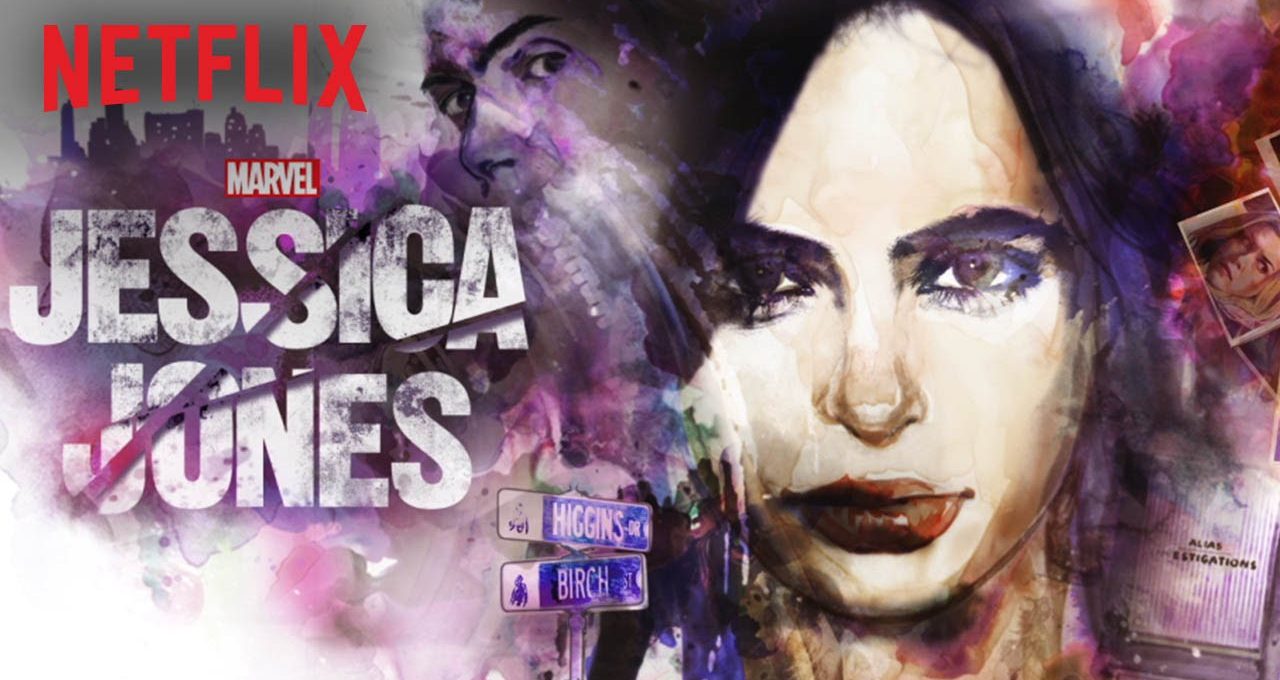Marvel might be best known for their summer tent pole blockbusters, but they’re proving that their real strength lies in more intimate, long-form series like Netflix’s Daredevil and Jessica Jones, the new series that released Friday. Although more “super-powered” in nature, Agents of S.H.I.E.D. has hit some strong notes in its third season. The action of those bigger blockbusters forms a distant background for more complex, engrossing character studies.
The titular character of Jessica Jones is a super-hero-turned-captive-
Jessica Jones feels especially relevant given the recent attacks in Paris and many Americans’ fearful reactions to them. Kilgrave might be one of film and television’s most terrifying villains and the closest embodiment to ISIS a single character can be. Like Jessica, he is no cartoon villain but feels like a real, corrupt(ing) individual. We don’t get a good look at him until the second or third episode, and, even after that, he’s still more shadow than body…an absent presence. Much like ISIS, he is very real and very dangerous, but his threat also lies in his victims’ and potential victims’ reaction to him…perhaps just as much or more than his inherent abilities.
Anyone could be under Kilgrave’s control so the natural reaction is to assume that everyone is. The entire city could be spying on and conspiring against Jessica, and it is this paranoia and uncertainty that lends the series much of its weight. It’s very similar to the ways in which many conservatives see a potential terrorist in every Muslim. Like Kilgrave and the characters in Jessica Jones, ISIS has mind-control over these conservatives, which further enhances their threat.
Jessica is a bad-ass, but as the series progresses, it reveals much of what makes Marvel series like The Avengers great. She can’t go it alone. She needs a community of ordinary and extraordinary heroes to stand beside her. Like other Marvel team ups, this community is a group of misfits that fight with each other just as much as they go up against their enemies. So far in this series, they’ve yet to get the job done, and, at this point, I’m not certain they will before the end off the season. Nevertheless, the theme of interdependence is still a welcome one.
Finally, the second episode of this first season contains a really strong indictment of a particularly conservative theology. This shouldn’t be surprising, as spiritual and theological themes formed one of the narrative threads in Daredevil. In this episode, Jessica pays a visit to one of Kilgrave’s victims, whose mother talks about his return as an answered prayer: “The Lord is an incredible maker of lives.” His mother talks about the role of God in their situation, but Jessica knows–as do we–that the devil really did it.
All thirteen episodes of Jessica Jones are currently streaming on Netflix.


